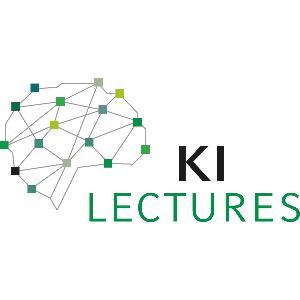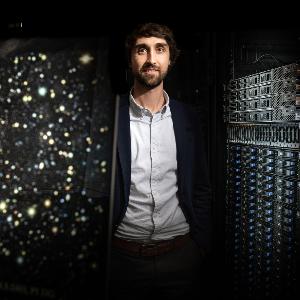The universe in the machine brain: Artificial Intelligence in Cosmology
16 Dec 2021
On 11 January 2022, LMU astrophysicist Daniel Gruen will talk about Artificial Intelligence in Cosmology.
16 Dec 2021
On 11 January 2022, LMU astrophysicist Daniel Gruen will talk about Artificial Intelligence in Cosmology.

Telescopes are collecting ever-increasing amounts of data about the Universe, enabling a better understanding of the most fundamental properties of our cosmos, its constituents and physical laws. The requirements of analyses used in this process differ significantly from traditional artificial intelligence use cases. The difficulty in observational cosmology lies in reconstructing with great accuracy almost invisible signals from the observation of large sections of the Universe.
Professor Daniel Gruen, Chair of Astrophysics, Cosmology and Artificial Intelligence in the Faculty of Physics at LMU, will use his AI Lecture to explain the importance of special architectures and training methods that already support cutting-edge cosmological measurements in key ways today. In addition, the astrophysicist will offer an outlook on the use of so-called generative models, which enable the machine to “learn” from the data available what the elusive structures of the Universe look like in reality.
Prof. Dr. Daniel Gruen: "The universe in the machine brain: Artificial Intelligence in Cosmology"
Tuesday, 11 January 2022, from 6:15 p.m. - 7:45 p.m.
More information about the "KI Lectures" can be found here.
Contact: ringvorlesung-lmu@lmu.de
Please note: The lecture will only be held in German. A VOD with English subtitles will be available shortly after the event on YouTube.

Prof. Dr. Daniel Gruen | © LMU
The so-called standard model of cosmology is currently the most accepted theory about the development of the Universe. But it cannot be correct, or it is at least incomplete. How do cosmologists deal with this dilemma?
Daniel Gruen: This dilemma is a great opportunity for cosmologists. We know there is a deeper truth about the physics of the Universe. We just don’t know what it is yet and how difficult it will be to find. So we’re looking very hard, building better telescopes and developing better analysis methods. Fortunately, we live in a time where there is a real chance to discover and understand this deeper truth!
How and where can artificial intelligence methods help?
Gruen: Artificial intelligence could be the key to this — AI is what helps us process the incredible amounts of data from modern telescopes in the first place. It makes it possible to analyze this data with great accuracy. And it may even be a kind of model for the complicated structures we find in the Universe, which we want to compare through our analytical calculations and simulations.
If we find something that doesn’t fit the so-called standard model, it would be a smoking gun for new and unexpected laws of nature.Daniel Gruen
What elusive structures of the Universe do you hope to find? Traces of dark energy, perhaps?
Gruen: Ultimately, our question is: do the structures in the Universe, such as its galaxy clusters or the huge overdensities of matter and the almost completely empty spaces in between, look like what we expect with our “standard model”? If we find something that doesn’t fit this model, it would be a smoking gun for new and unexpected laws of nature. Maybe this smoking gun would be very small, but finding it would be a big breakthrough for physics!
Professor Daniel Gruen holds the Chair of Astrophysics, Cosmology and Artificial Intelligence in the Faculty of Physics at LMU.